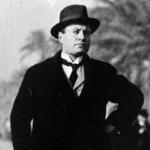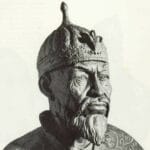Have you ever wondered about the origin of your last name? If your surname is Pascua, you possess a unique link to a rich tapestry of history and tradition. Meaning “Easter” in Spanish, the Pascua name takes us on a fascinating journey across continents, blending cultural influences with the spirit of this major religious celebration.
Uncovering the Roots of the Pascua Name
The story of the Pascua name likely began modestly, not as a legacy passed down through generations, but as a simple nickname. It probably emerged as a way to identify someone closely associated with the Easter season. Perhaps their family was renowned for hosting elaborate Easter feasts, or maybe they were even born during that special time of year.
Over time, this label, once a casual identifier, stuck. It transitioned into a family name, a way to connect individuals through a shared heritage, forever linking them to the spirit of Easter. This evolution from nickname to surname reveals the profound influence of cultural and religious traditions in shaping identities, even centuries ago.
The word “Pascua” itself comes from the Spanish and Italian words for “Easter,” directly connecting the name to this important holiday. While the name’s roots are firmly planted in Spain, its journey didn’t end there. As people migrated and cultures intertwined, the Pascua name traveled across the globe. It found new homes in various parts of the world, particularly in Latin America and the Americas, reflecting the lasting impact of Spanish and Italian influence.
Where in the World is Pascua? Tracing its Global Footprint
Delving deeper into the Pascua name’s origins reveals a captivating journey that extends far beyond its Spanish roots, reaching the shores of the Philippines. While Spain is its birthplace, the Philippines boasts the highest concentration of individuals bearing the Pascua name today. This intriguing pattern suggests a strong historical link between the two countries, likely stemming from Spain’s colonial past in the region.
Across the Pacific, in the United States, another fascinating trend emerges. The majority of individuals with the Pascua name identify as Asian/Pacific Islander. This finding aligns with the Philippines’ close ties to the surname and the waves of migration from the archipelago to the United States throughout history.
Historical records offer further clues to the Pascua name’s global travels. Between 1891 and 1920, the surname appears in the USA, the UK, and Canada. By 1920, a noticeable cluster of Pascua families had settled in Hawaii, hinting at a significant migration wave to the Pacific region.
While we’ve uncovered compelling evidence of the Pascua name’s global journey, the full story is still being written. Ongoing research and evolving data may reveal even more about its fascinating history and the people who carry it.
Delving into the Past: The History of the Pascua Name
To truly understand the Pascua name, we must journey back in time to medieval Spain, to a period when last names were just beginning to emerge. It was common for individuals to acquire nicknames based on religious holidays or significant events. Given the name’s meaning, it’s highly probable that the first individuals or families to bear the Pascua name were closely associated with Easter celebrations.
Imagine a family known throughout their village for their lavish Easter feasts, their home a hub of joy and celebration during the holiday. Or perhaps the first Pascua was a child born on Easter Sunday, forever marked by the spirit of the day. Over generations, this nickname, imbued with tradition and family history, transformed into a hereditary surname.
The Pascua name, however, didn’t remain confined to its Spanish birthplace. Mirroring the movements of the people who carried it, the surname embarked on a global voyage. Unsurprisingly, early traces appear in Spain, particularly in regions deeply rooted in Catholic traditions. As exploration and migration expanded, so too did the reach of the Pascua name. It appeared in the Americas, the United States, Canada, Latin America, and, of course, the Philippines.
For those seeking to connect with their own Pascua ancestry, genealogical records offer a captivating portal to the past. Census data from the United States, for example, reveals fascinating details about the lives of those who came before us. Many Pascua family members worked as “Laborers” or “Cane Cutters,” providing glimpses into their socioeconomic circumstances. By studying lifespans, researchers can even begin to piece together connections between living conditions and overall health during different periods.
Unlocking Linguistic Ancestry: The Origin of the Spanish Word “Pascua”
The Spanish word “Pascua,” while sounding distinctly Spanish, has roots that extend far beyond the Iberian Peninsula, reaching back to the ancient Hebrew language. The term originates from the Hebrew “Pesach,” a word laden with profound religious meaning. “Pesach” translates to “Passover,” the Jewish festival commemorating the Israelites’ exodus from slavery in Egypt.
As Christianity spread throughout the Roman Empire, the concept of “Pesach” took on new layers of meaning. Early Christians, many familiar with the Passover story, began to draw parallels between the Israelites’ liberation and the resurrection of Jesus. This symbolic connection led to the adoption of “Pesach” into ecclesiastical Latin, the language of the early Church. In Latin, it transformed into “Pascha,” becoming the term for the Christian celebration of Easter.
Through the natural evolution of languages, “Pascha” continued its transformation, eventually finding a home in the Spanish language as “Pascua.” This linguistic journey highlights how the word “Pascua” acts as a bridge between cultures and faiths, carrying within it the layered history and intertwined significance of both Passover and Easter.
More Than a Name: The Legacy of Pascua
The Pascua surname, with its roots deeply embedded in the celebration of Easter, offers a compelling example of how our family names can connect us to centuries-old traditions and historical events. It’s a reminder that our names are not merely labels but threads woven into a vast and intricate tapestry of human history.
As languages evolve, so too do names, and Pascua is no exception. Variations in spelling and pronunciation have emerged over time. You might encounter “Pasqua” or “Pascual,” yet even with these subtle shifts, the name’s core connection to Easter perseveres.
Today, individuals from diverse backgrounds across the globe bear the Pascua surname. This beautiful mosaic reflects the name’s adaptability and far-reaching influence, embodying a global story that continues to unfold. The Pascua name, therefore, represents more than just a family line; it represents a rich cultural heritage, intertwined with Hispanic identity, the Catholic faith, and the enduring legacy of migration and cultural exchange.
Did you know that Helen Keller went flying in an airplane in 1911? Helen Keller flew in a plane. In addition, Mickey Gubitosi was the first deaf-blind person to earn a pilot’s license and fly solo! Learn more about Mickey Gubitosi’s amazing life here.
















